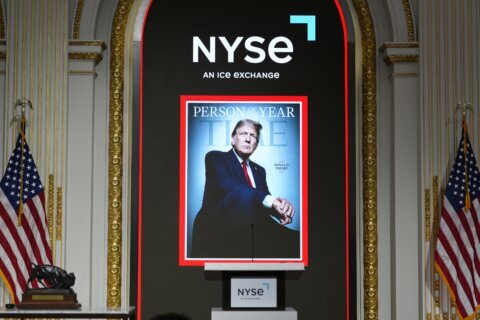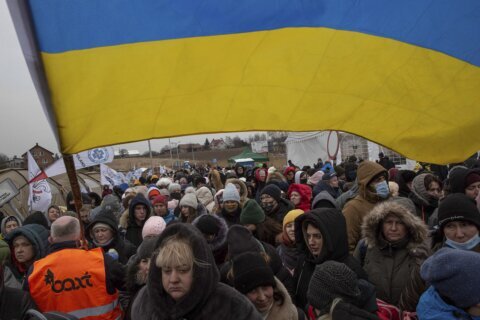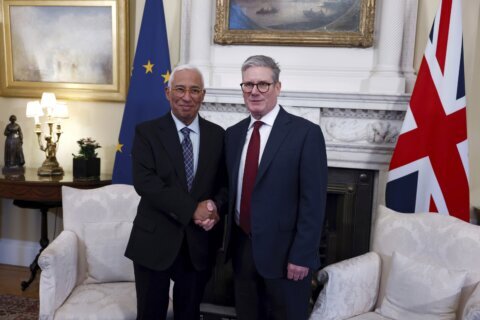BUDAPEST, Hungary (AP) — Hungarian Prime Minister Viktor Orbán on Thursday released a letter he addressed to the heads of European Union countries where he presented his impressions from a recent series of visits with some of the bloc’s biggest adversaries that angered many of his allies.
The letter, which Orbán sent to European Council Chairman Charles Michel on July 12, outlines his assessment of meetings he held under the auspices of a self-declared “peace mission” that included trips this month to both Moscow and Beijing, visits he cast as an attempt to broker an end to Russia’s war in Ukraine.
Those visits garnered major backlash among EU leaders, who rebuked Orbán for holding meetings with Russia’s Vladimir Putin and China’s Xi Jinping without first consulting his European partners. He was also criticized for undermining EU unity on Ukraine and for giving the false impression that he was representing the bloc.
In Orbán’s 10-point letter, which he released on his website Thursday, he says that Putin and Ukrainian President Volodymyr Zelenskyy, with whom he also met this month, are unlikely to make initiatives for a cease-fire or peace negotiations to bring an end to the war.
The warring parties, he wrote, “will not start searching for a way out of the conflict without significant external involvement.” He suggests that the EU — which, along with the United States and China he describes as the only global powers that can influence developments in the conflict — “has copied the pro-war policy of the US,” and should break with Washington and pursue efforts for a cease-fire.
Orbán has long confounded his Western partners by pursuing warm ties with Putin, a relationship that was rendered more alarming when Moscow launched its full-scale invasion of Ukraine in 2022. He has also vigorously lobbied for Chinese investments and a more China-friendly economic policy while most EU countries seek to limit Beijing’s influence.
He has routinely acted as a spoiler in EU efforts to assist Kyiv and impose sanctions on Moscow for its war in Ukraine, and has long broken with his allies to argue for an immediate cessation of hostilities without outlining what that might mean for Ukraine’s territorial integrity or future security.
Orbán’s recent visits to Kyiv, Moscow and Beijing — as well as a meeting with former President Donald Trump at his Mar-a-Lago estate — drew significant ire from European capitals and led some governments to consider boycotting upcoming informal meetings in Budapest related to Hungary’s holding of the EU’s six-month rotating presidency.
Orbán, who has supported Trump in his efforts to regain the U.S. presidency, claimed in his letter that the former president would act as a “peace broker” in the case of an election victory this November, a scenario he described as “likely.”
Trump, he wrote, “will not wait until his inauguration, but will be ready to act as a peace broker immediately. He has detailed and well-founded plans for this.”
Yet the nationalist leader seemed to confirm the fears of Ukraine and many NATO members that as president, Trump would likely oversee the cutting of U.S. financial and arms support for Kyiv as it fights off Russia’s invasion.
If Trump wins the election, he wrote, “the proportion of the financial burden between the US and the EU will significantly change to the EU’s disadvantage when it comes to the financial support of Ukraine.”
Copyright © 2024 The Associated Press. All rights reserved. This material may not be published, broadcast, written or redistributed.







